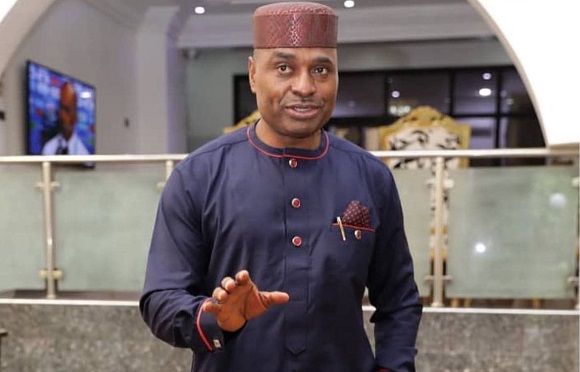Wassim El-Husseini, board director of the Nigerian Economic Summit Group (NESG), says sustainable management of water resources is vital to the country’s economic growth.
NESG, in collaboration with the United Nations Global Compact Network Nigeria (UNGC), on Wednesday, held a CEO Water Mandate: Nigeria sign-up endorsement and inaugural meeting with the theme ‘A risk-based Approach for Sustainable Water Stewardship’.
The CEO Water Mandate is a UN Global Compact initiative mobilising business leaders on water, sanitation, and sustainable development goals (SDGs).
In his welcome remarks at the event, El-Husseini, who is also the managing director of Nestle Nigeria, said the CEO Water Mandate is aimed at managing water risks and helping companies adequately disclose the water management activities in their organisations.
Advertisement
He said CEO Water Mandate is directed at increasing public awareness around activities surrounding sustainable use of water resources.
On her part, Soromidayo George, board chair at UN Global Compact Network Nigeria, said freshwater challenges worldwide are wide-ranging and pervasive.
George, also director corporate affairs & sustainable business, Unilever, added that more than 2 billion people live around river basins where water demand outstrips supply.
Advertisement
“Today in Nigeria, we are putting more pressure on freshwater resources than ever. Between a rapidly growing population and a shifting climate, water stress — and therefore water risk — is increasing,” George said.
“Growing water demand and water scarcity, pollution, insufficient access to safe, affordable water, sanitation and hygiene (WASH), and freshwater ecosystems are at an all-time high risk.”
George said that by signing up for the CEO Water Mandate, companies could reduce operational costs, boost talent recruitment and help enhance the sustainability of their environments.
While stating the terms of reference and structure of the CEO Water Mandate Nigeria Business Council, Naomi Nwokolo, executive director, UN Global Compact Network Nigeria, disclosed that the council has six core areas.
Advertisement
Nwokolo said the core areas include direct operations, supply chain and watershed management, collective action, public policy, community engagement and transparency.
In his goodwill message, MKO Balogun, MD/CEO of Global Properties & Facilities, said his organisation has signed up for the CEO Water Mandate.
Balogun explained that the construction industry consumes a lot of water, emphasising the need to understand consumption patterns to find more efficient ways for water consumption.
Advertisement
Add a comment






